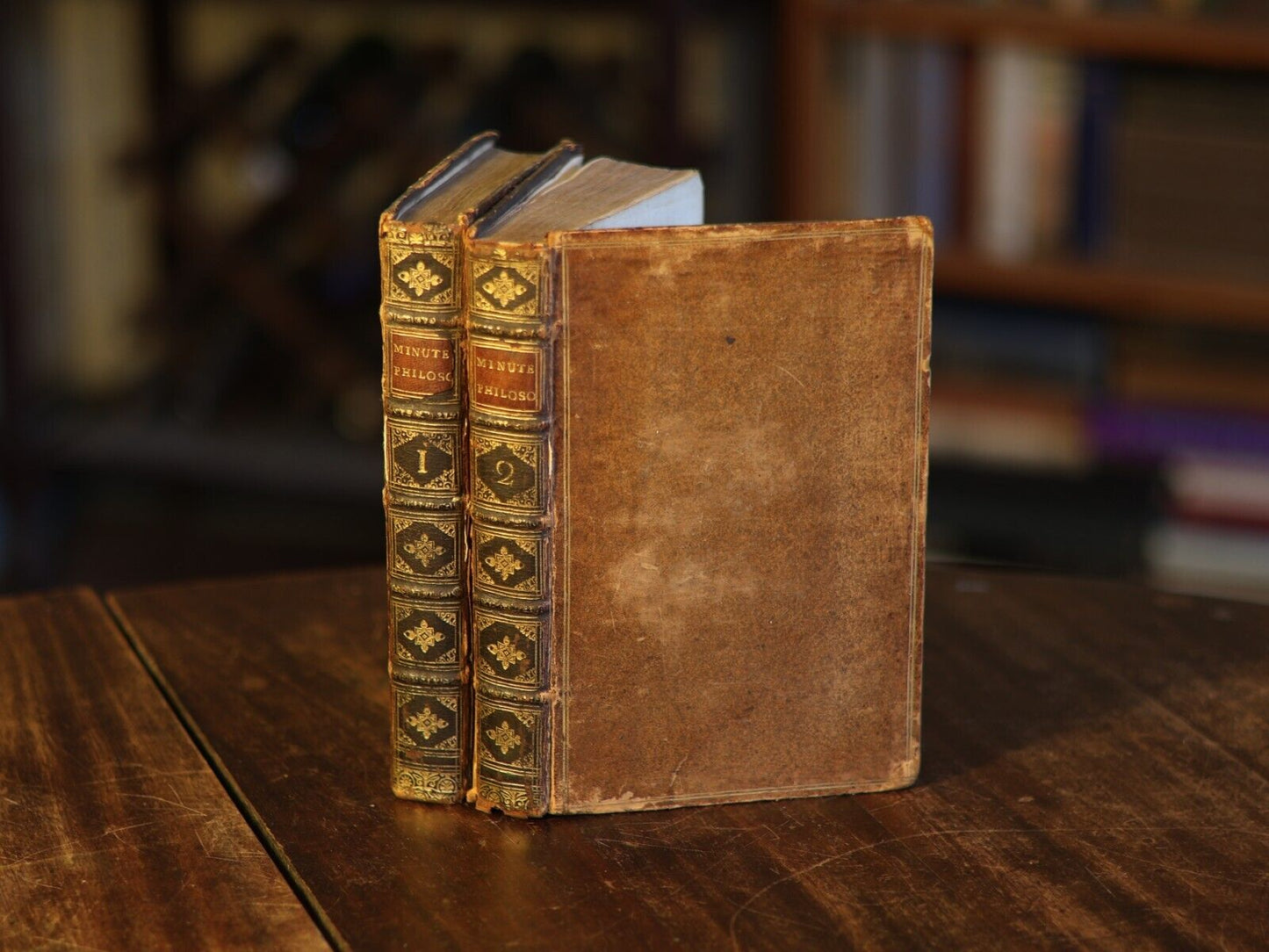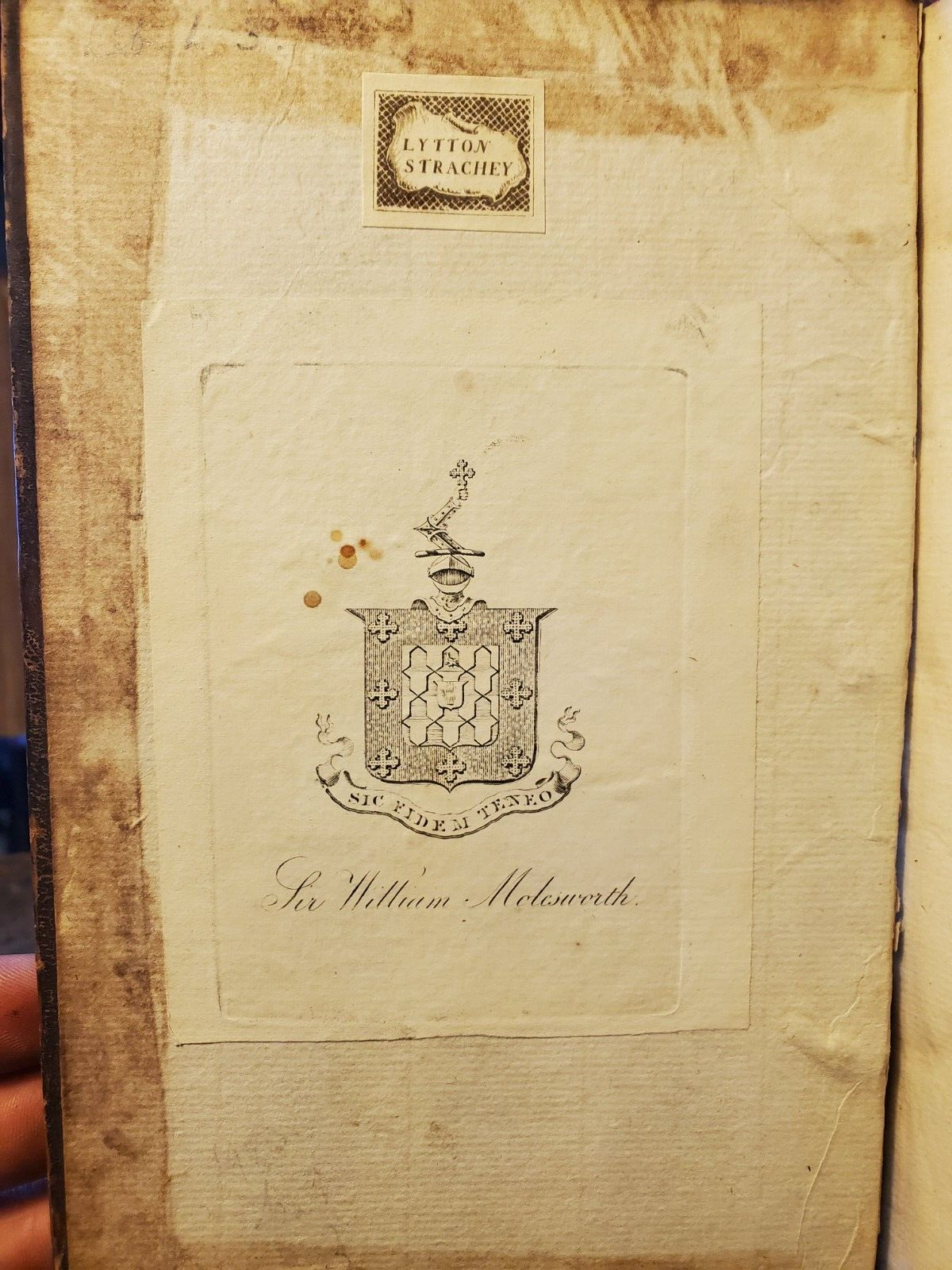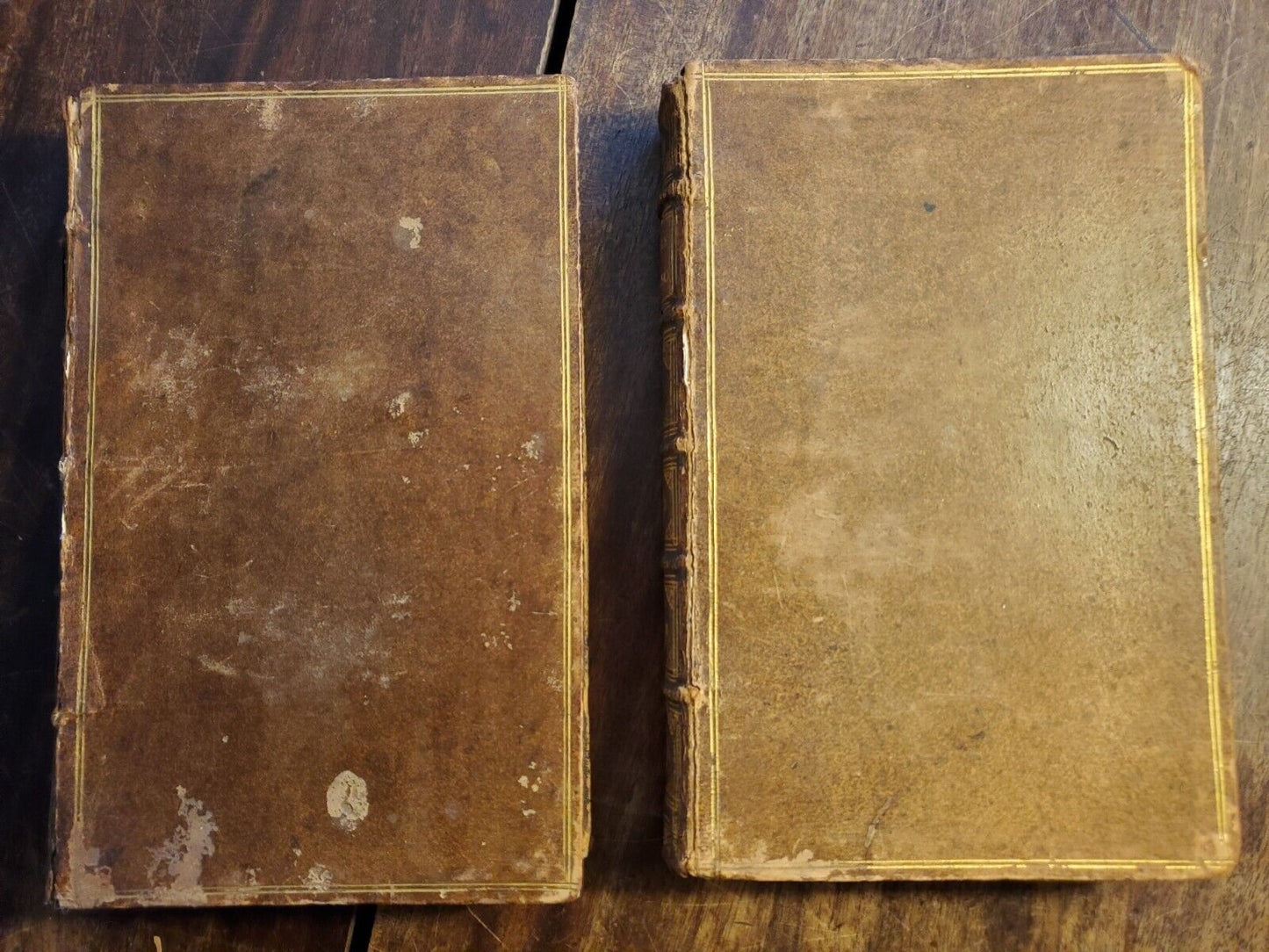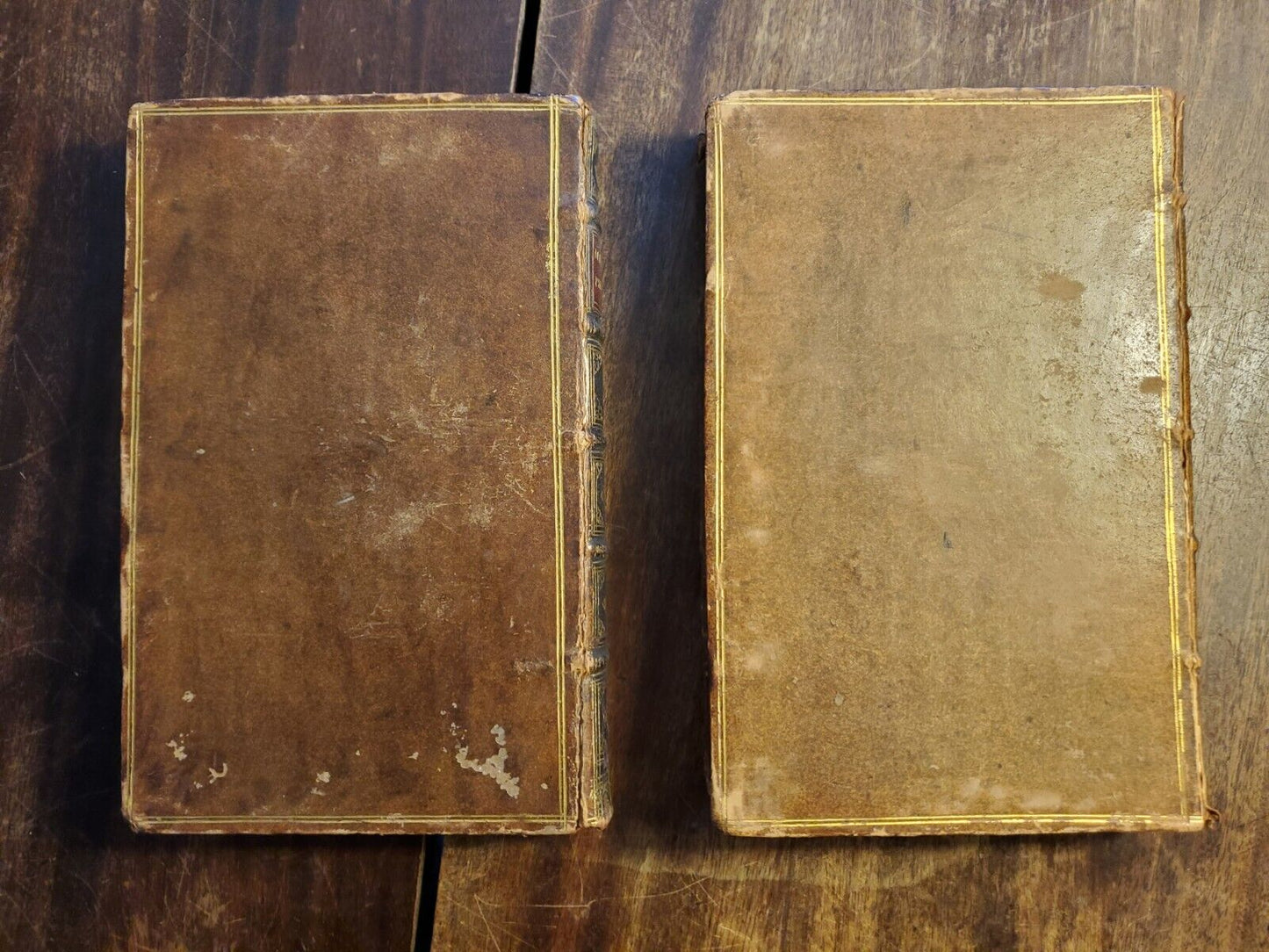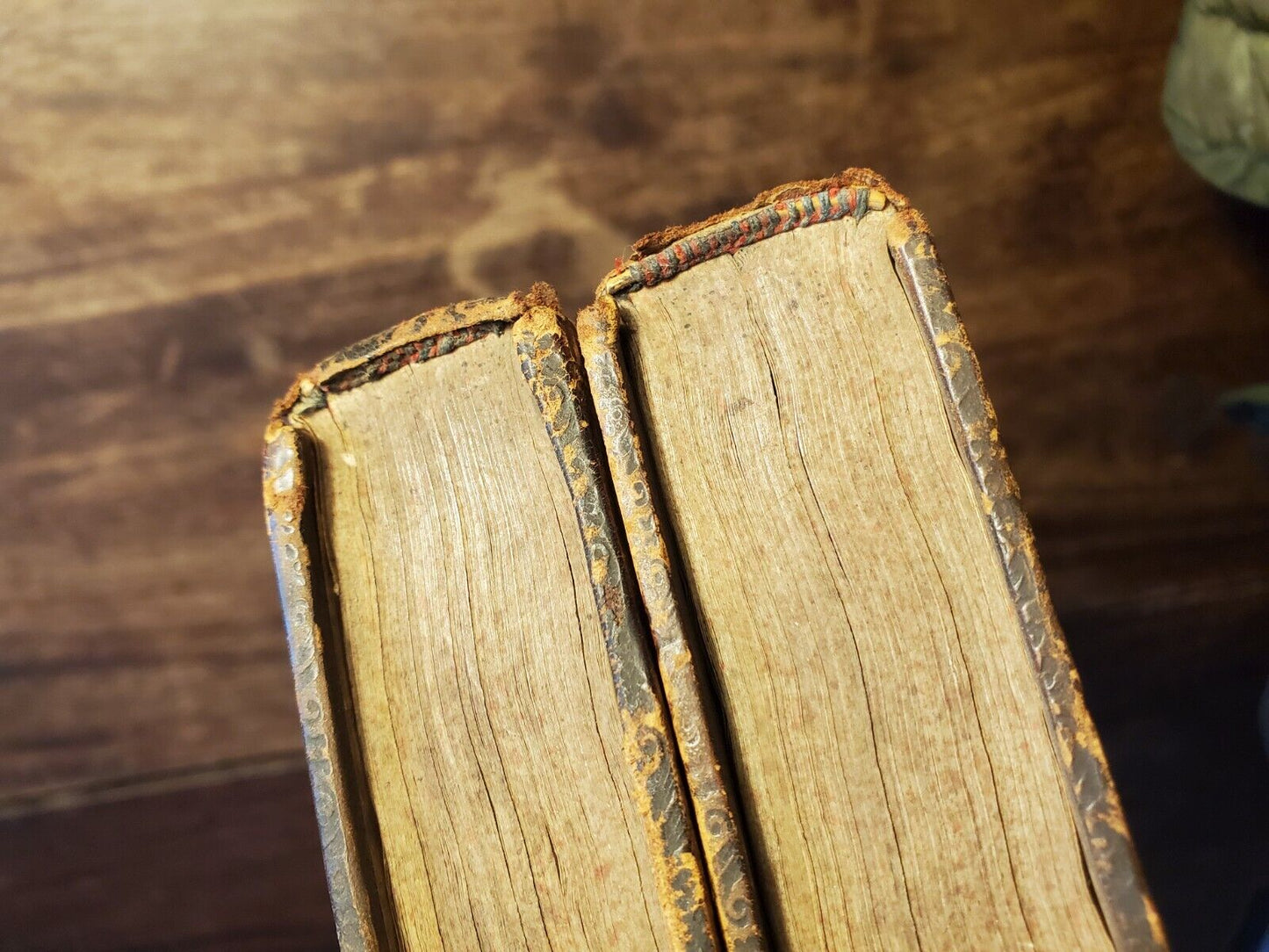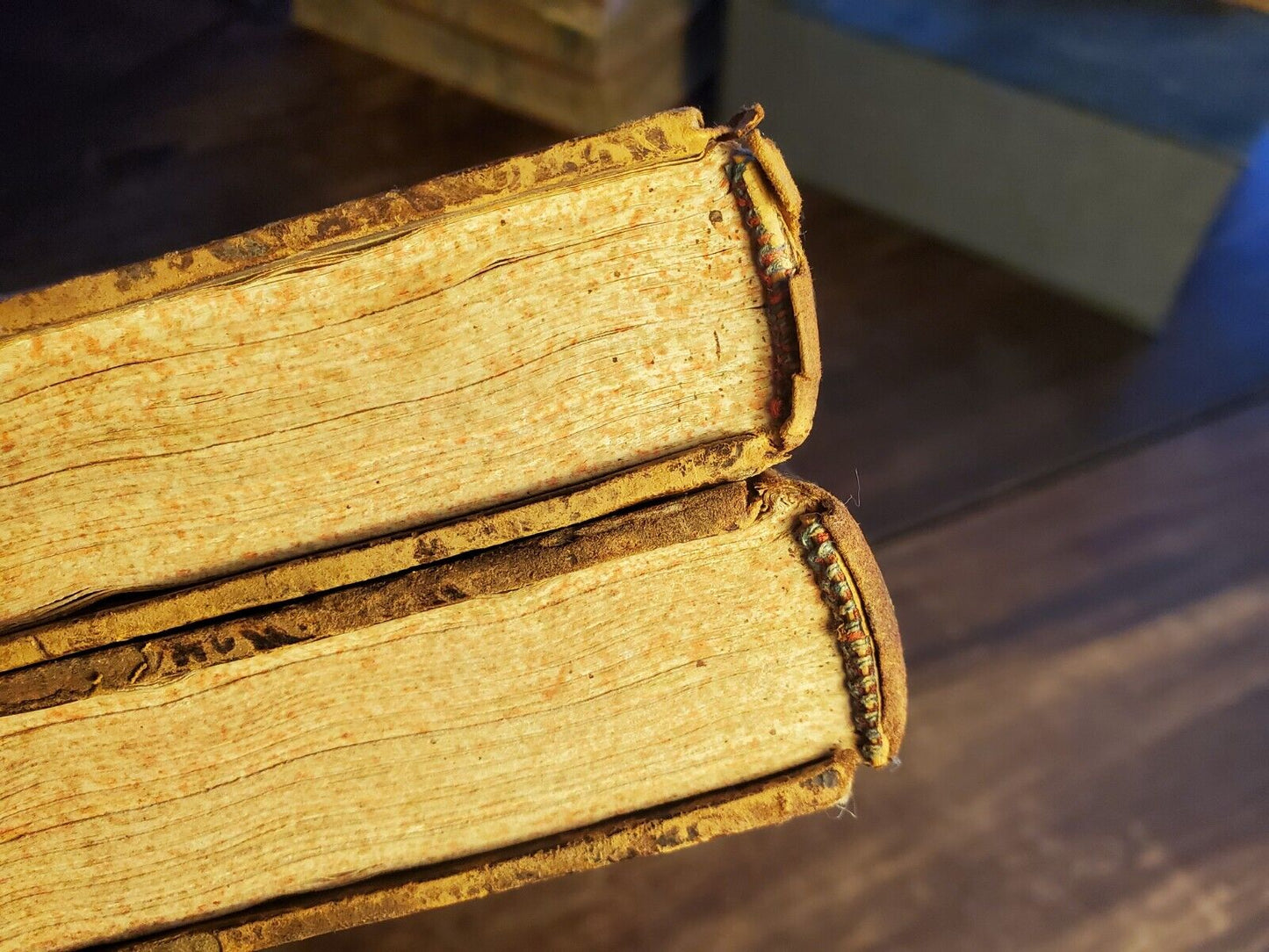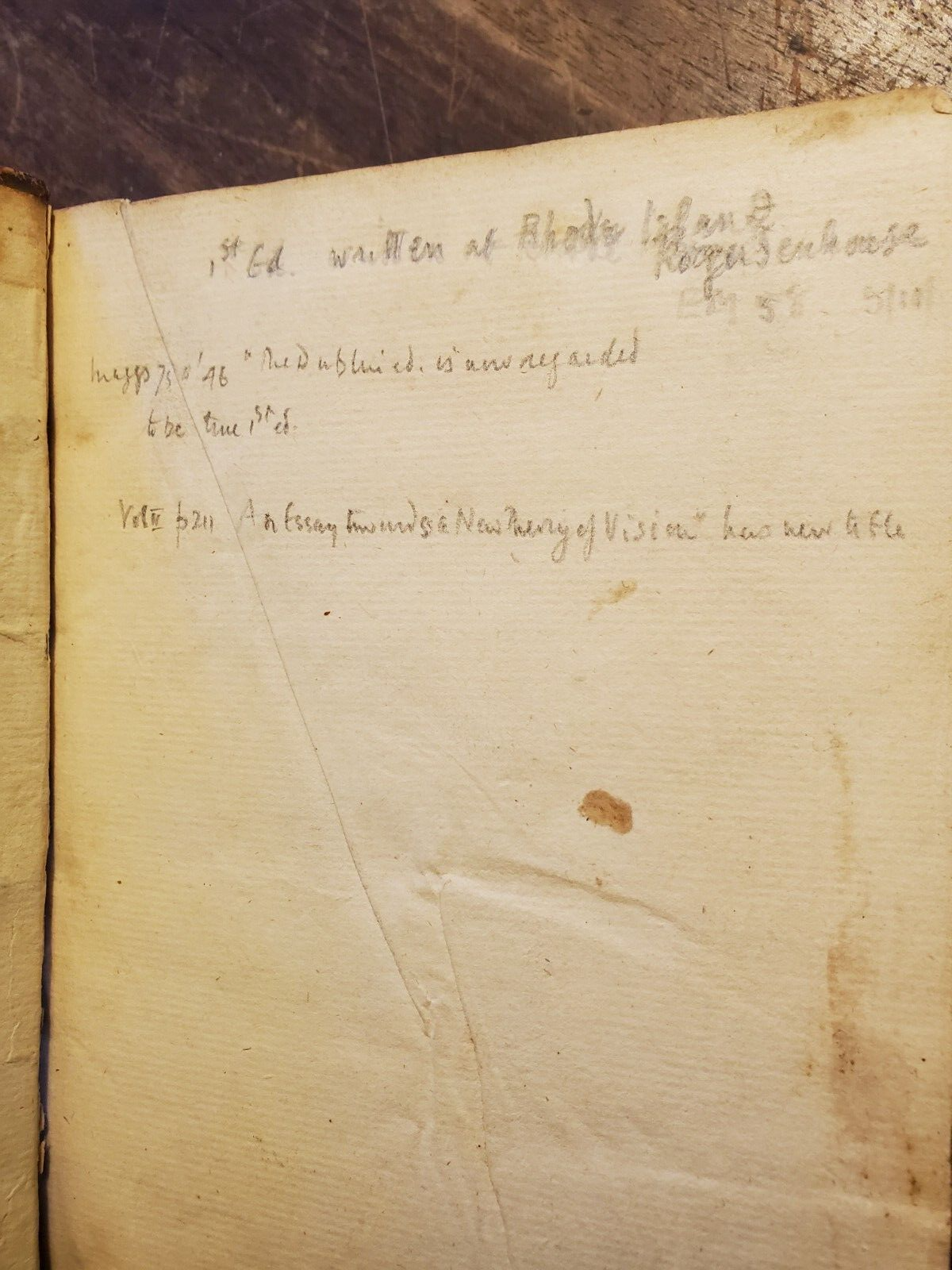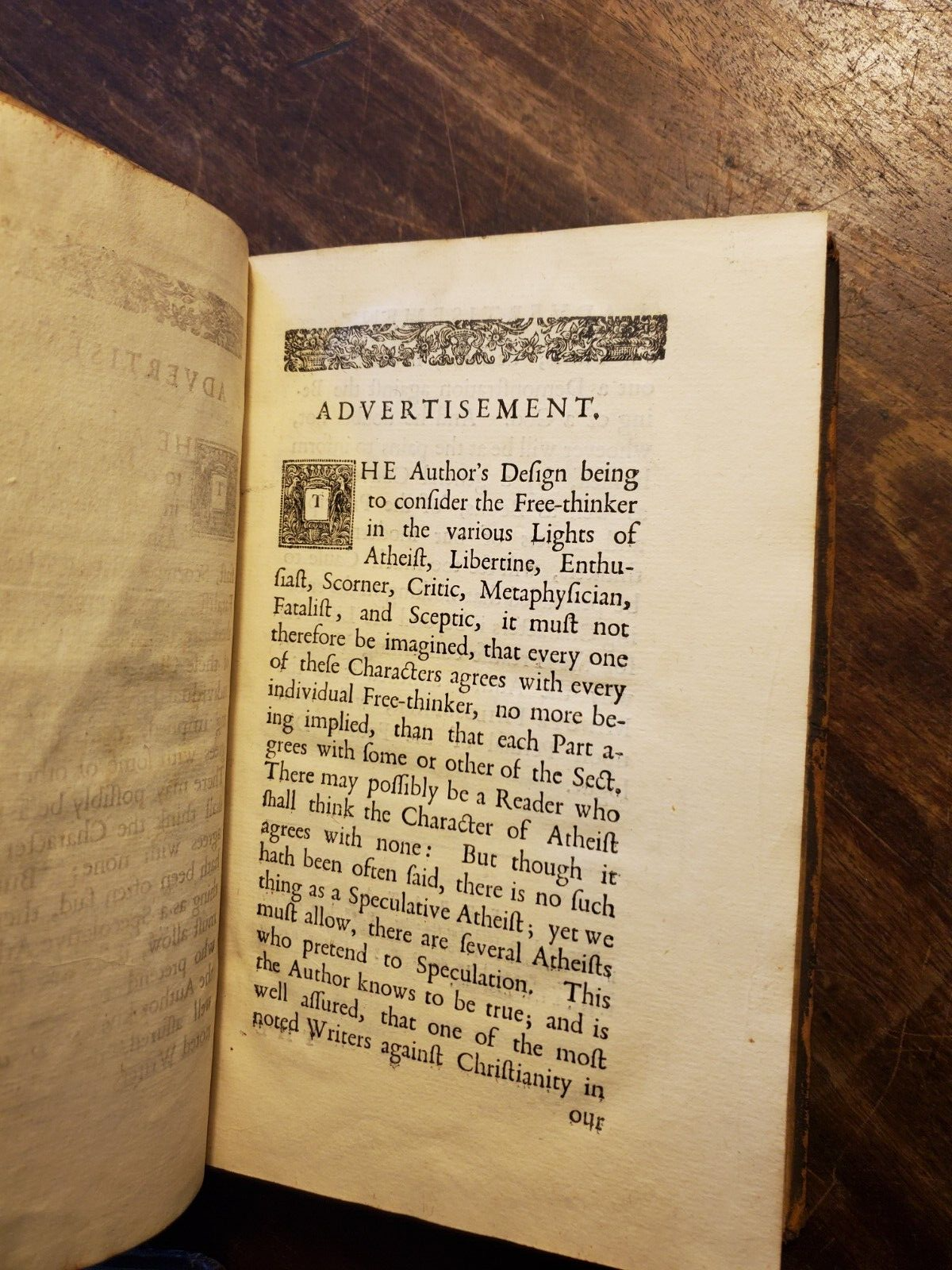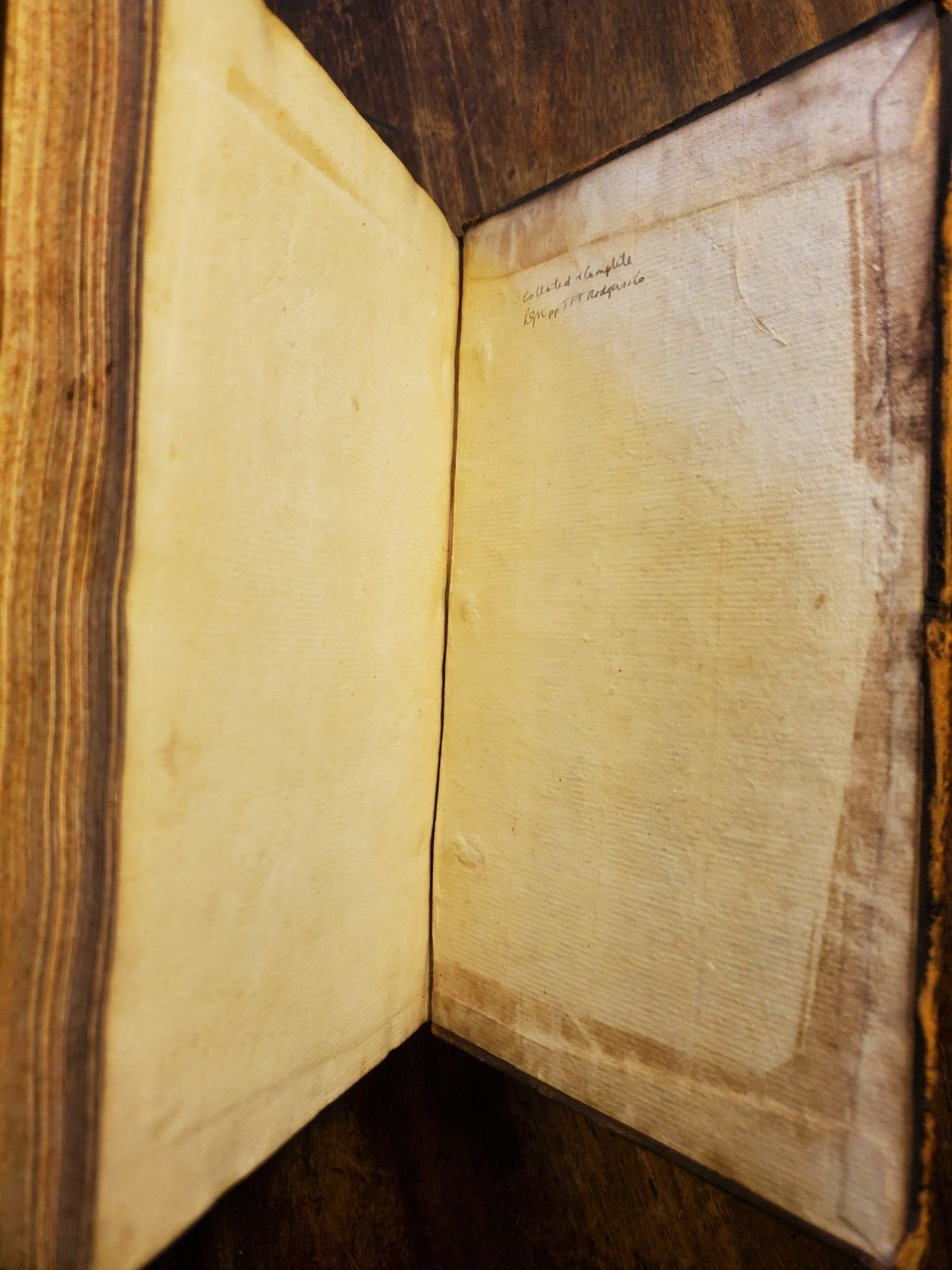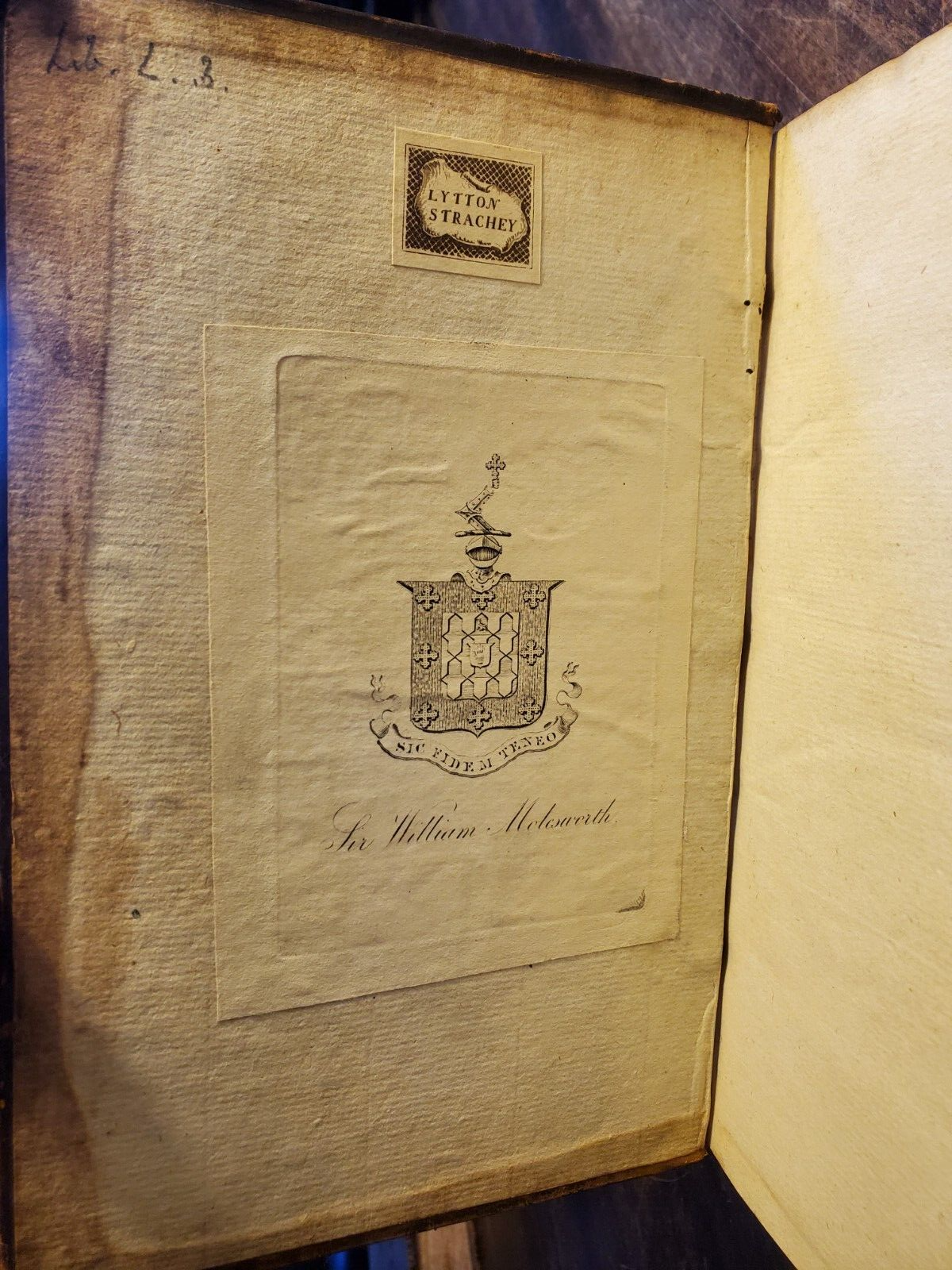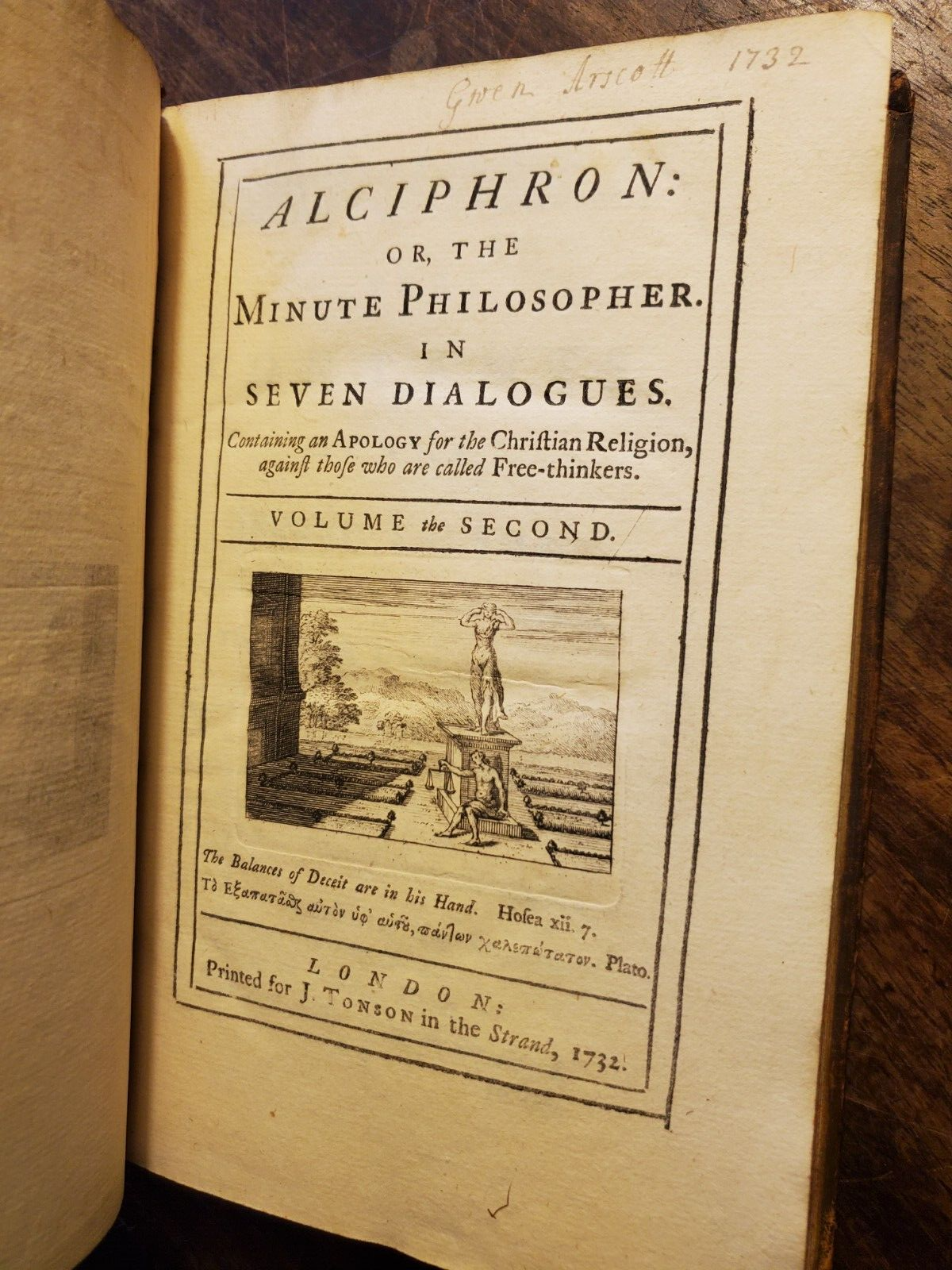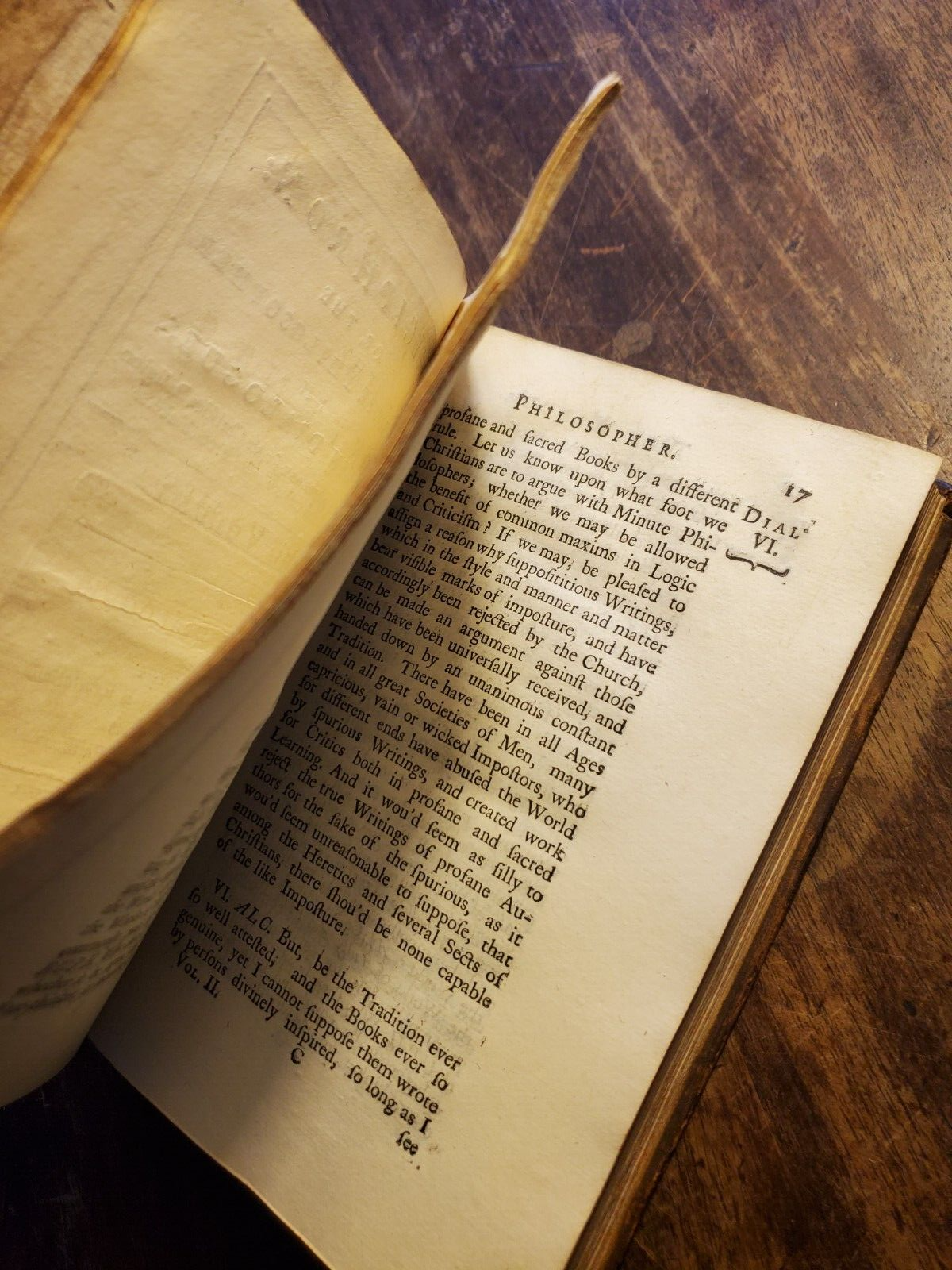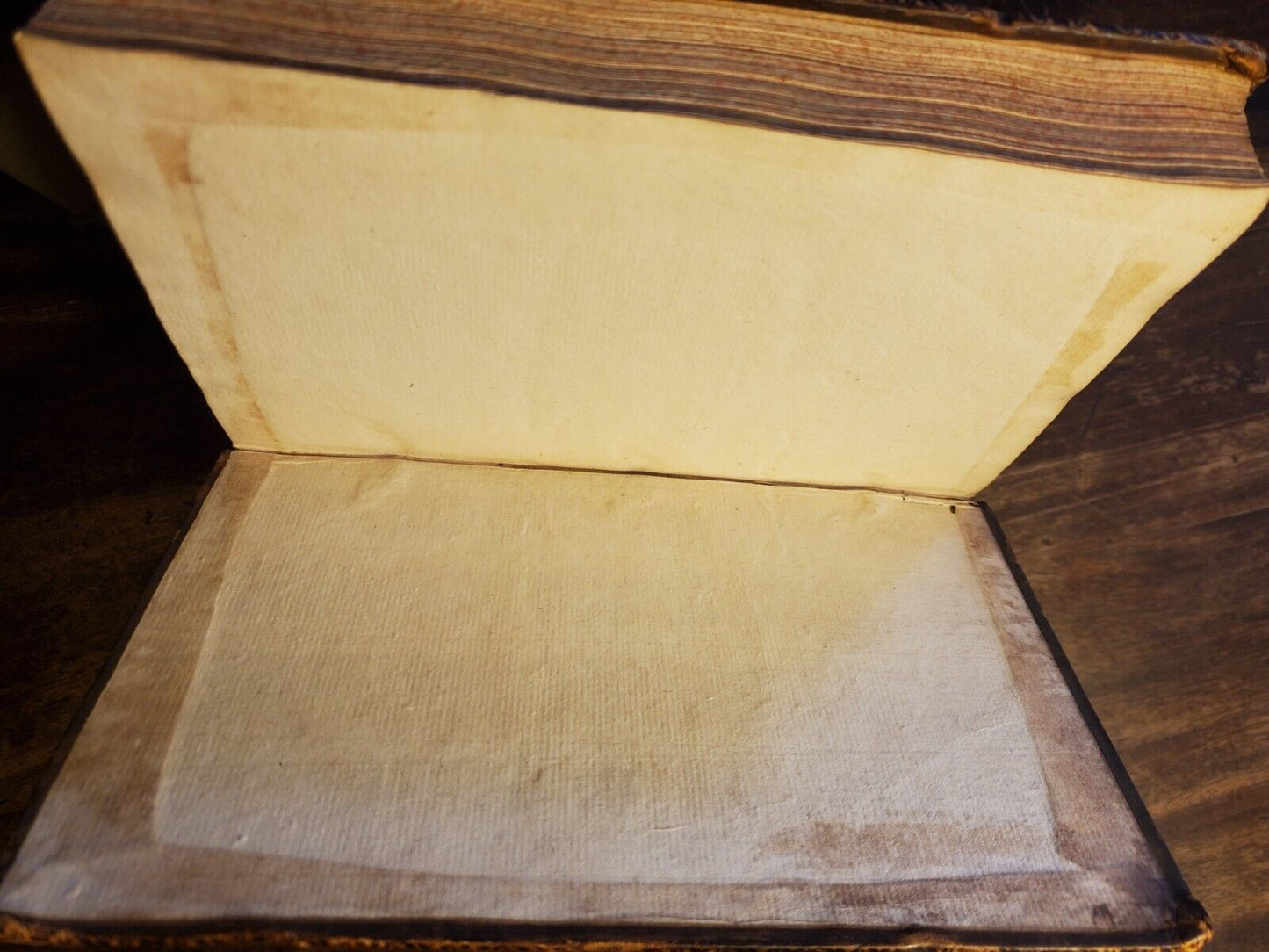1
/
of
14
ProfessBooks
Alciphron by George Berkeley 1732 1st London Ed., Ex-libris Strachey, Molesworth
Alciphron by George Berkeley 1732 1st London Ed., Ex-libris Strachey, Molesworth
Regular price
$7,500.00 USD
Regular price
Sale price
$7,500.00 USD
Unit price
/
per
Couldn't load pickup availability
Share
Alciphron: Or, the Minute Philosopher in Seven Dialogues by Dr. George Berkeley with Sir William Molesworth and Lytton Strachey bookplates.
View full details
Very interesting set. To start, the books themselves are in their original bindings in very good internal condition, possibly worthy of refurbishing or restoring. Previous owner Gwen Arscott signed both volumes the same year they were printed (she was was wife of Arthur Arscott, MP, who was brother of Jane Molesworth, who is a direct ancestor of Sir William Molesworth, 8th baronet). The history of the book after Molesworth and before Strachey is unknown.
The work is set in a conversational setting and pits free-thinkers Alciphron and Lysicles versus Christians Euphranor and Crito. It is generally regarded as a pro-Christian work, but is interesting in this context for its connection with Strachey and Molesworth; both Strachey and Molesworth are considered to be proponents of the free thought movement, and must have considered this work to be significant in other ways in order for it to have been in their libraries (in the case of Molesworth, it is more debatable as to whether he fully aligned with free thought ideas). My guess is that they found wisdom in some of the philosophical insights. But, there is another interesting aspect of the story.
Strachey was notable for his biographical works and involvement in the Bloomsbury group, which included John Maynard Keynes, Virginia Woolf, and other english writers, intellectuals, etc. According to wikipedia, this group "deeply influenced literature, aesthetics, criticism, and economics, as well as modern attitudes towards feminism, pacifism, and sexuality". Also interesting are the roots of the Bloomsbury group being the Cambridge Apostles, a group that was noted for its near-public homosexuality in the early 1900s. Given that Molesworth had been identified with freethinking ideas, it is interesting that Strachey would own the book (did he have a reason for buying Molesworth's copy, or was is coincidence? Was Molesworth in the Cambridge Apostles? Are there deeper connections to be made?)
An interesting set of books that undoubtedly impacted the minds of significant cultural leaders and radicals. Impressive provenance.
Let me know if you have any questions or if you desire more photos. Thank you.
